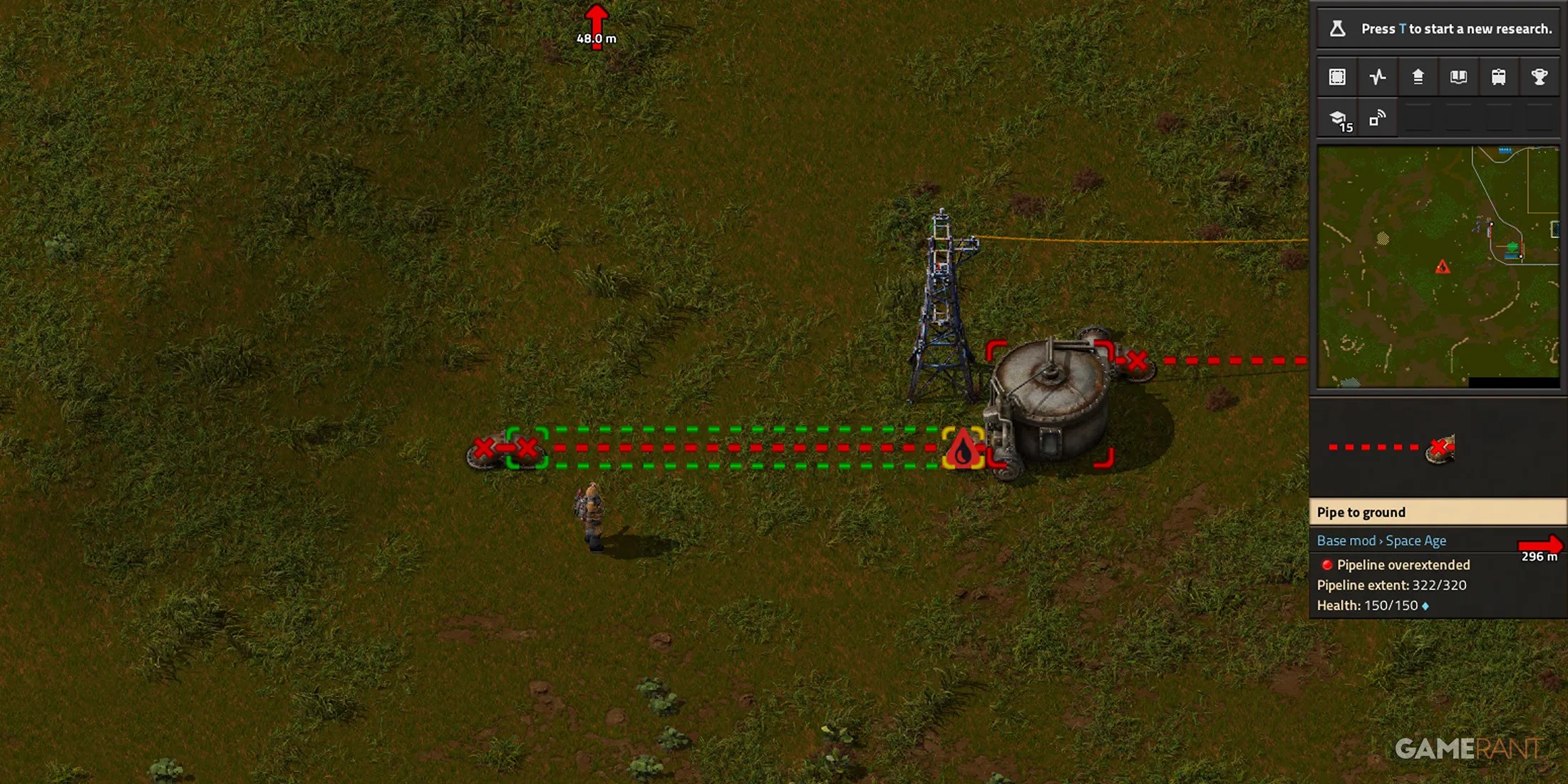Pipeline overextended refers to the phenomenon where the capacity and efficiency of a pipeline system exceed its design limits, leading to various operational challenges and potential risks. This issue is particularly crucial in industries such as oil and gas, water supply, and telecommunications, where pipelines play a vital role in the distribution of essential resources. Understanding the implications of pipeline overextension is essential for maintaining safety, efficiency, and sustainability in these sectors.
In this article, we will delve into the causes and effects of pipeline overextension, explore its impact on industries, and discuss strategies to mitigate related risks. We aim to provide a thorough understanding of the topic, supported by data and expert insights, ensuring that our readers are well-informed about the challenges and solutions associated with pipeline overextension.
As we navigate through this complex subject, we will address the importance of implementing best practices in pipeline management and the need for regulatory frameworks to ensure safe operations. Join us as we explore this critical issue and its far-reaching implications.
Table of Contents
- What is Pipeline Overextended?
- Causes of Pipeline Overextension
- Effects of Pipeline Overextension
- Impact on Various Industries
- Case Studies
- Mitigation Strategies
- Regulatory Frameworks
- Future Outlook
What is Pipeline Overextended?
Pipeline overextended occurs when the operational demands placed on a pipeline system surpass its designed capacity. This can happen due to various factors, including increased demand for resources, aging infrastructure, or failure to adapt to evolving industry standards.
Pipelines are designed with specific flow rates and pressure limits. When these limits are exceeded, it can lead to detrimental effects such as leaks, ruptures, and operational inefficiencies. Understanding the definition and implications of pipeline overextension is crucial for industry professionals and stakeholders.
Causes of Pipeline Overextension
Several factors contribute to pipeline overextension. Some of the primary causes include:
- Increased Demand: Rapid population growth and industrial expansion can lead to higher demand for resources.
- Aging Infrastructure: Aging pipelines may not withstand modern operational pressures, leading to overextension.
- Regulatory Changes: New regulations may require pipelines to operate under stricter guidelines, increasing operational pressures.
- Technological Advancements: Innovations may enable higher throughput, but older pipelines may struggle to keep up.
Effects of Pipeline Overextension
The effects of pipeline overextension can be severe and far-reaching. Some of the most significant consequences include:
- Safety Hazards: Increased risk of leaks, spills, and explosions pose significant safety hazards to workers and the public.
- Environmental Impact: Pipeline failures can lead to environmental degradation, affecting ecosystems and communities.
- Economic Costs: The financial burden of repairs, legal liabilities, and regulatory fines can be substantial.
- Operational Inefficiencies: Overextended pipelines can lead to increased maintenance costs and reduced reliability.
Impact on Various Industries
Pipeline overextension affects multiple industries, including:
Oil and Gas Industry
In the oil and gas sector, pipeline overextension can lead to catastrophic failures, resulting in significant environmental disasters and financial losses.
Water Supply Systems
Water supply pipelines may face pressure issues, leading to water loss and service disruptions for communities.
Telecommunications
In telecommunications, overextended data pipelines can lead to reduced service quality and increased latency, impacting user experience.
Case Studies
Examining historical case studies provides valuable insights into the real-world implications of pipeline overextension. Some notable examples include:
- Exxon Valdez Oil Spill (1989): An infamous case of oil pipeline failure that had devastating environmental and economic impacts.
- Flint Water Crisis (2014): Infrastructure overextension led to severe water quality issues, affecting public health.
Mitigation Strategies
To address the challenges of pipeline overextension, industries can implement several mitigation strategies:
- Regular Inspections: Conducting routine inspections can identify potential issues before they escalate.
- Upgrading Infrastructure: Investing in modern pipeline technologies can enhance capacity and safety.
- Demand Management: Implementing demand management strategies can help balance supply and demand.
Regulatory Frameworks
Robust regulatory frameworks are essential to ensure the safe operation of pipeline systems. Governments and industry bodies must collaborate to establish guidelines that prioritize safety, environmental protection, and operational efficiency.
Future Outlook
The future of pipeline management will likely involve greater emphasis on sustainability, technology integration, and proactive risk management. As industries evolve, addressing the challenges of pipeline overextension will be crucial for long-term viability.
Conclusion
In summary, pipeline overextended is a critical issue that demands attention from various industries. Understanding its causes, effects, and potential solutions is essential for maintaining safety and efficiency. We encourage readers to engage with this topic by sharing their thoughts and experiences in the comments section below.
Call to Action
If you found this article informative, please consider sharing it with others who may benefit from understanding the implications of pipeline overextension. Additionally, explore our site for more articles on related topics.
Closing Remarks
Thank you for taking the time to read our comprehensive analysis of pipeline overextended. We hope you found it valuable and invite you to return for more insightful articles in the future.
Article Recommendations


